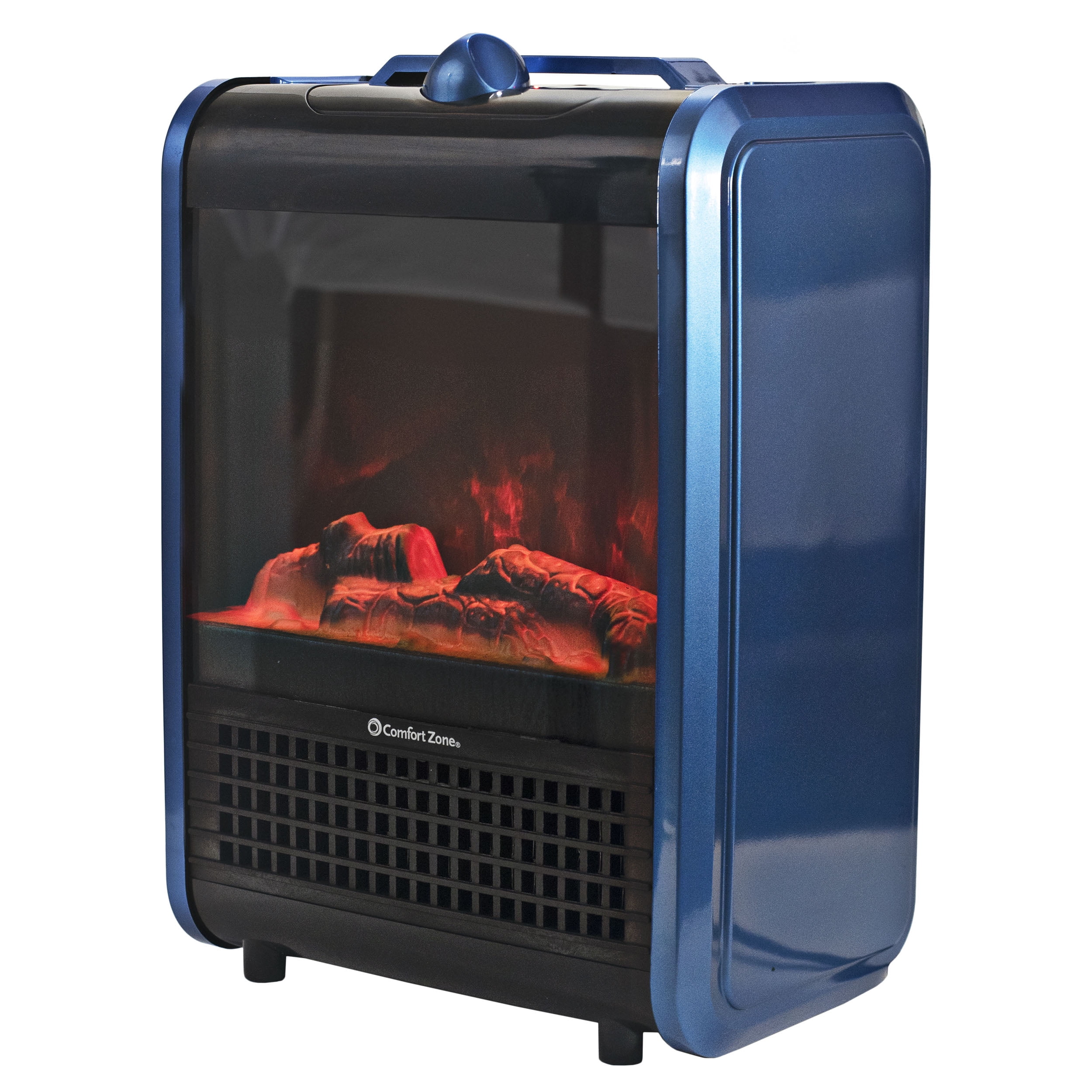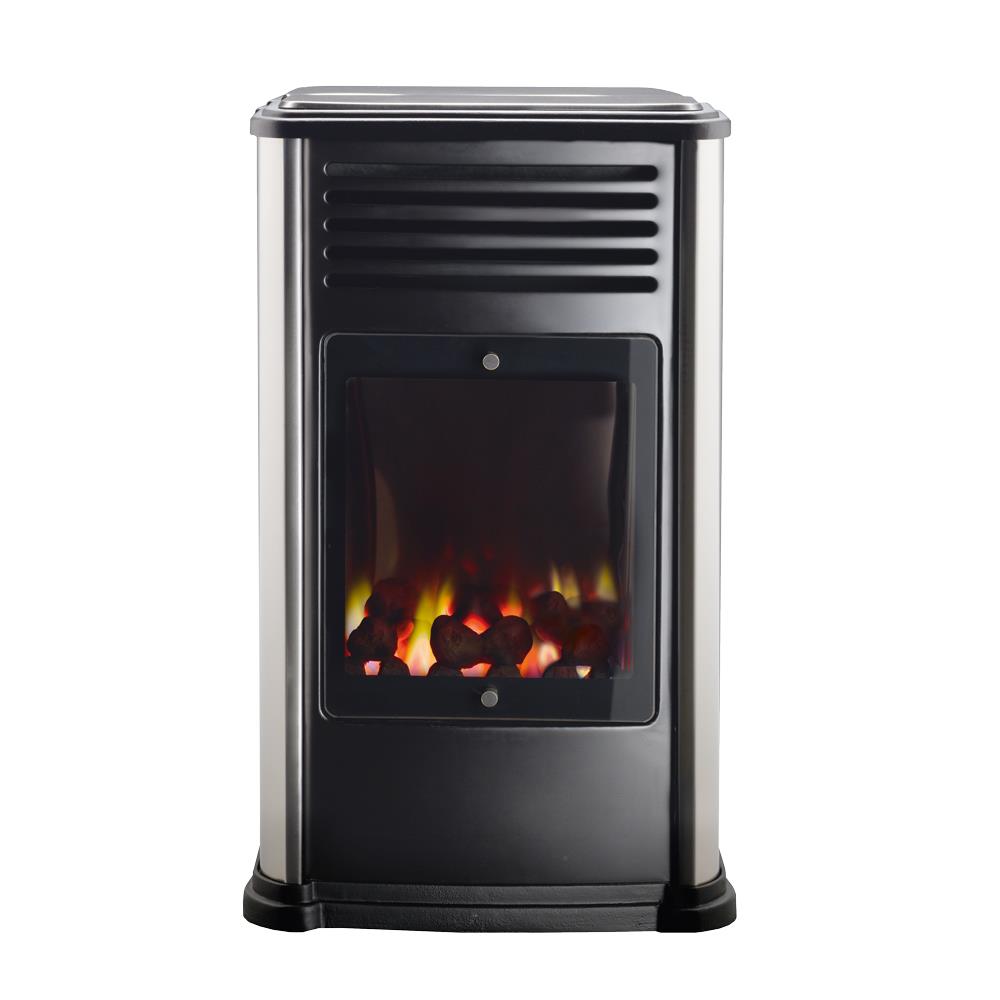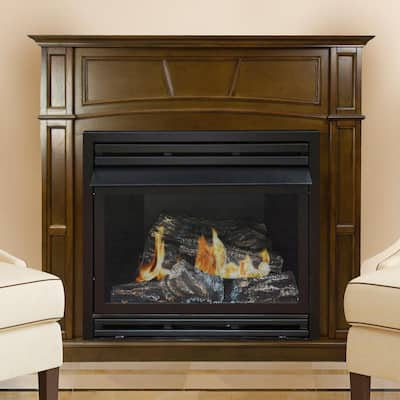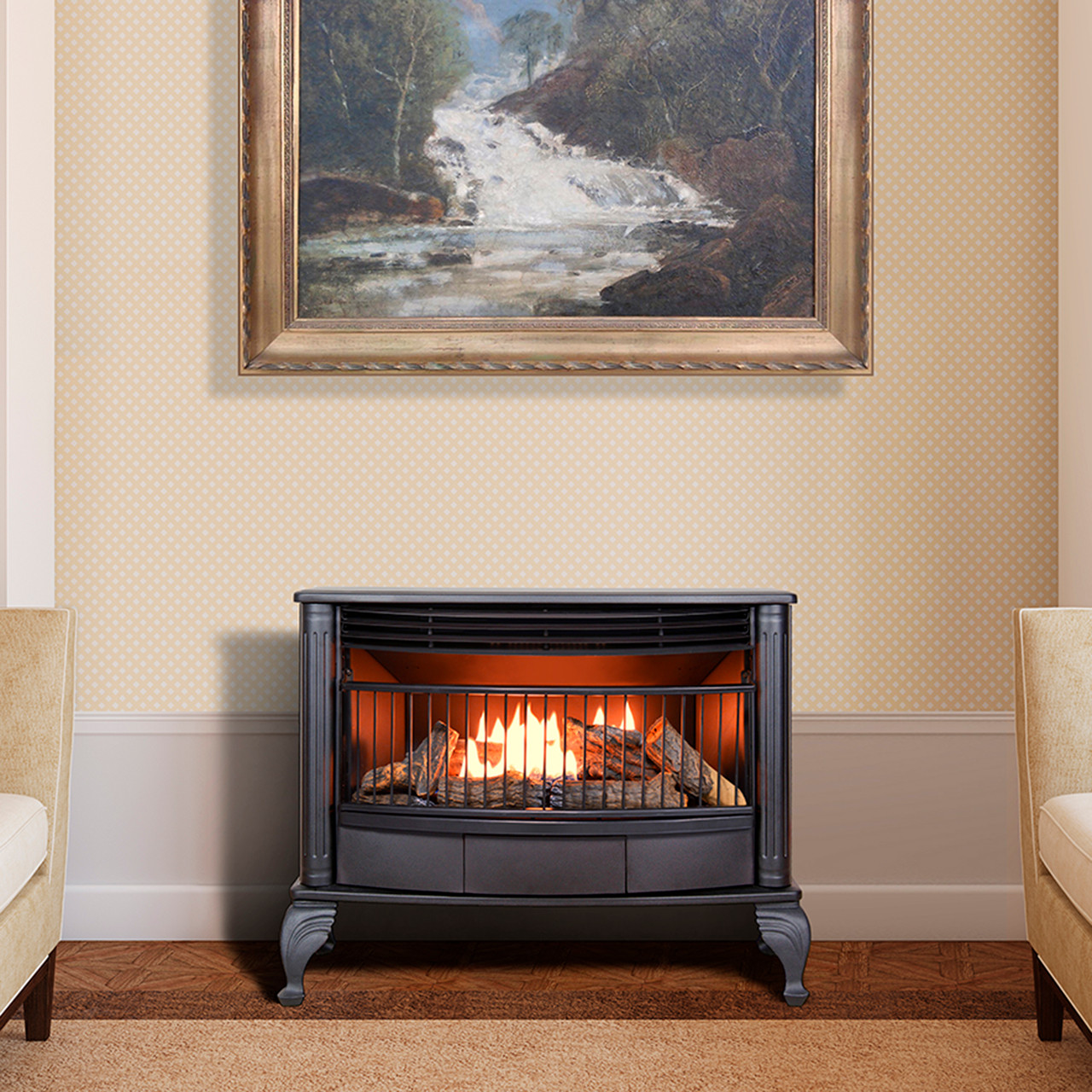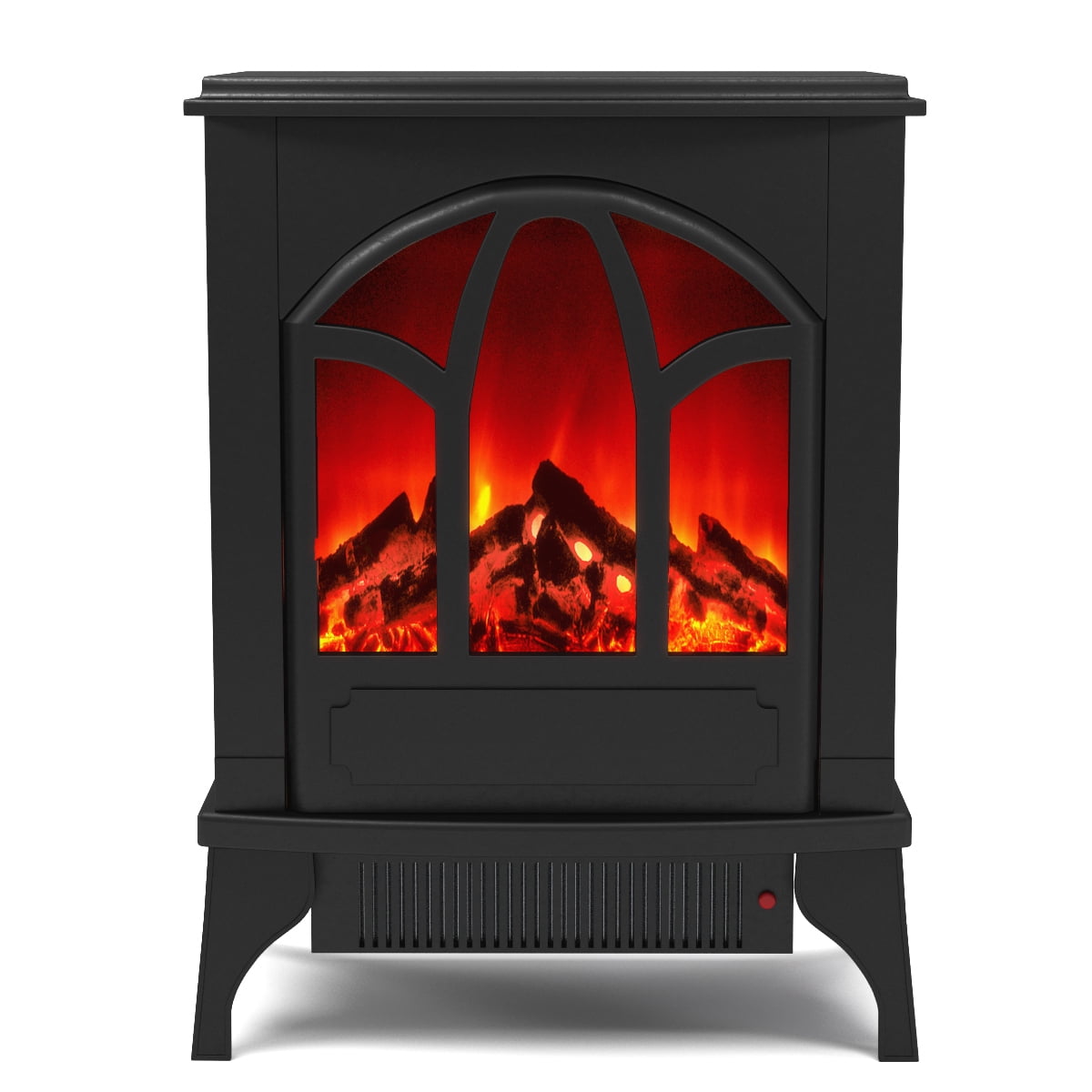When the weather drops, staying warm is a primary priority. A portable gas fireplace heater is an easy and beautiful method to keep any room warm without the trouble of traditional wood-burning fires. These heaters are portable, efficient, and deliver quick heat, making them ideal for houses, cottages, and even outdoor events. In this post, I’ll go over the advantages, features, and practical applications of portable gas fireplace heaters to help you decide whether they’re a good fit for your heating needs.
Advantages of a Portable Gas Fireplace Heater
One of the most significant benefits of a portable gas fireplace heater is its convenience. Unlike traditional fireplaces, you do not have to chop wood, clear ashes, or deal with smoke. These heaters run on propane or natural gas and provide quick heat with the press of a button or the turn of a knob. I enjoy how quickly they warm up a room, making them excellent for chilly mornings or sudden cold blasts.
Another advantage is their portability. Many varieties include wheels or handles, allowing you to transport them from room to room or even outside for a patio event. I used mine in the living room over the winter and then relocated it to the garage to work on tasks. The versatility is unparalleled, and it saves money by heating exactly the places you need rather than relying on central heating.
Finally, these heaters are often built to resemble a real fireplace, complete with lifelike flames. This means you get warmth and ambiance without any clutter. I enjoy how they add to the mood of a place while making it comfy. Some models even offer changeable flame settings, allowing you to customize the brightness and intensity to match your mood.
How to Select the Right Model
The greatest portable gas fireplace heater relies on your unique requirements. First, assess the size of the space you intend to heat. Smaller heaters are ideal for bedrooms or workplaces, but larger versions are suitable for open living areas. I measured my space before purchasing to ensure that the heater I selected had adequate BTU output to keep it warm efficiently.
The type of fuel is also a significant consideration. Propane heaters are more portable because they have refillable tanks, whereas natural gas ones require a fixed gas line but provide a constant fuel supply. I chose a dual-fuel model, which allows me to use either choice depending on the situation. It’s worth investigating which gasoline type is more readily available and cost-effective in your area.
Finally, consider other characteristics such as safety controls, thermostat settings, and design. Overheat prevention and tip-over shutdown are essential for safety, particularly if you have children or pets. I also prefer heaters with adjustable thermostats to ensure a steady temperature. The visual style is also important—some appear like modern stoves, while others resemble classic fireplaces, so choose one that complements your décor.
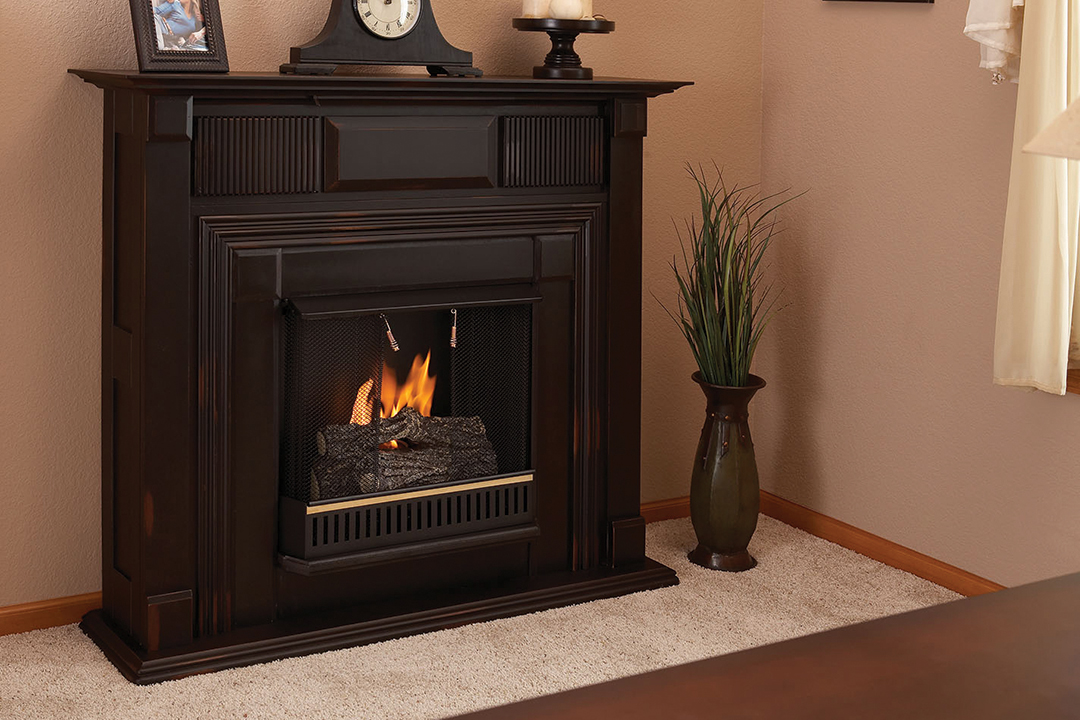
Safety Guidelines for Using a Portable Gas Heater
When utilizing any heating appliance, safety should always be the top priority. Always keep your portable gas fireplace heater on a sturdy, non-flammable surface. I keep mine on a tile floor away from carpets, draperies, and furniture to avoid fire concerns. Proper ventilation is also essential, especially if you’re using a propane heater indoors, to avoid carbon monoxide accumulation.
Never leave the heater running unattended, especially when sleeping. I make it a point to turn my off before leaving the room or going to bed. As a precaution, place carbon monoxide detectors nearby. Even though modern heaters contain safety mechanisms, it’s always best to be safe than sorry when working with gas appliances.
Regular maintenance keeps your heater operating safely and effectively. I clean the burner and inspect for gas leaks at least once a year. If you notice any weird odors or changes in the flame color (it should be blue, not yellow), switch off the heater right once and have it inspected. Following these simple procedures will help prevent accidents and increase the life of your heater.
Best Uses for Portable Gas Fireplace Heaters
These heaters are extremely adaptable, making them helpful in a variety of applications. During the winter, I use mine to enhance the heat in my living room. It’s ideal for creating a nice place near the couch without turning up the thermostat throughout the house. The flashing flames also provide a calming atmosphere, making nights more enjoyable.
They are also ideal for outdoor spaces. During fall events, I bring my portable heater to the patio, which keeps everyone warm without emitting the smoke of a fire pit. Some types are specifically intended for camping, delivering consistent heat in tents or cabins. If you intend to use the model outside, make sure it is rated for that use.
For individuals who live in RVs or compact houses, a portable gas fireplace heater can be a game changer. Space is often restricted, and these heaters provide excellent heat while taking up little room. I’ve seen friends use them in their campsites, and they work great as both primary and backup heat sources during power outages.
Cost and Energy Efficiency
Portable gas fireplace heaters can be an economical heating alternative. While the initial cost varies depending on the model, they are typically less expensive to run than electric heaters because gas is frequently less expensive than electricity. I’ve noticed a decrease in my heating expenditures since utilizing it to supplement my central heating system.
Energy efficiency is another great suit. Many types have excellent efficiency ratings, which means they turn the majority of the gas into heat with little waste. I prefer ventless devices for indoor use since they retain nearly all of the heat generated, whereas vented models lose some through the exhaust. However, always verify local rules, as some places prohibit ventless heaters owing to moisture and air quality issues.
Maintenance expenditures are lower than those for typical fireplaces. There are no chimneys to clean or wood to purchase—only periodic inspections and gas refills. Over time, the savings accumulate, making these heaters an excellent long-term investment for people wishing to reduce heating expenditures without losing comfort.
Comparing Portable Gas Heaters and Other Options
When picking between a portable gas fireplace heater and alternative heating techniques, there are some important considerations to consider. Electric heaters are simple to use, but they often cost more to operate, particularly in large settings. I’ve discovered that gas heaters produce greater, more constant heat, therefore I prefer them for main living rooms.
Wood-burning fireplaces provide a timeless vibe but take a lot more effort. You must store wood, start the fire, then clean up afterward. My gas heater provides the same pleasant atmosphere without any of the hassle. Furthermore, there is no smoke or sparks to worry about, making it suitable for daily use.
Pellet stoves are another option, albeit they are typically bigger and less portable. A portable gas heater is more suited to my lifestyle since I enjoy the freedom to move my heater about. It all depends on your priorities—for me, gas fireplace heaters are the best option due to their convenience, low cost, and ease of use.
Can I bring a portable gas fireplace heater indoors?
Yes, many portable gas fireplace heaters are intended for indoor usage, but it is critical to select a ventless model or guarantee sufficient ventilation when using a vented one. Follow the manufacturer’s instructions and install carbon monoxide detectors for safety. I use mine indoors on a regular basis, but I make sure there is ample airflow to prevent the development of dangerous gases. Never bring an outside heater indoors since it can offer major health concerns.
How long does a propane tank last for a portable heater?
The duration is determined by the heater’s BTU rating and the capacity of the propane tank. A regular 20-pound tank lasts 10 to 20 hours on a medium setting. In my experience, a greater BTU output uses gas more quickly, so if you use it frequently, keeping an additional tank on available is a smart idea. Always refer to the manufacturer’s specs for accurate estimations based on your model.
Are portable gas fireplace heaters safe for pets and children?
While these heaters contain safety features like as tip-over shutdown and cool-to-touch exteriors, they should be used under supervision around pets and children. I keep mine in a location that is not easily accessible to my dog, and I utilize a safety gate as necessary. Teaching children to stay away from the heater and setting it in a safe position reduces hazards while keeping the room warm.
Do these heaters need professional installation?
Most portable gas fireplace heaters are straightforward to set up and do not require professional installation, especially if they use propane tanks. However, natural gas models may require a gas line connection, which must be performed by a licensed technician. I built my propane heater myself, following the instructions in the manual, but if you’re hesitant, it’s always best to see a professional.
Can I cook with a portable gas fireplace heater?
No, these heaters are not intended for cooking. Unlike camp stoves, they lack the necessary surface and temperature control to prepare meals safely. I’ve seen individuals attempt to warm tiny items on top, but this is not recommended owing to the potential of carbon monoxide release or unintentional burns. Only use these for heating.
How should I clean and maintain my portable gas heater?
Regular maintenance is simple. Wipe off the exterior with a moist towel and use a gentle brush to remove dust from the burner area. Check the gas connections for leaks using soapy water; if bubbles appear, there is a leak. I do this at least once per year. Always consult the user manual for detailed cleaning instructions to maintain your heater functioning smoothly and safely.
Ventless Fireplaces, Gas Heaters, Electric Heaters, Gas Log Sets
Regal Flame Juno Electric Fireplace Free Standing Portable Space Heater Stove Better than Wood Fireplaces, Gas Logs, Wall Mounted, Log Sets, Gas,
Related Posts:

